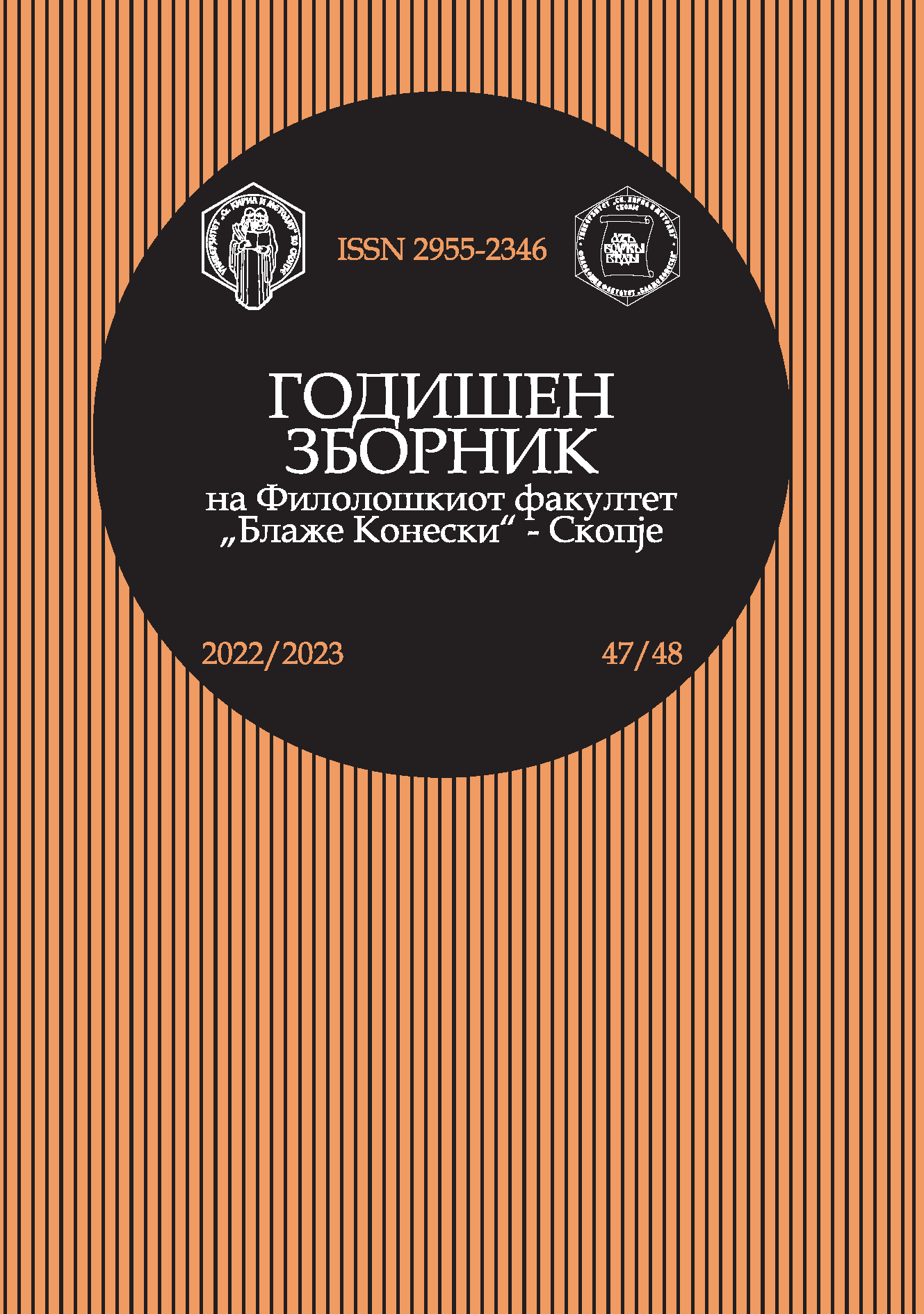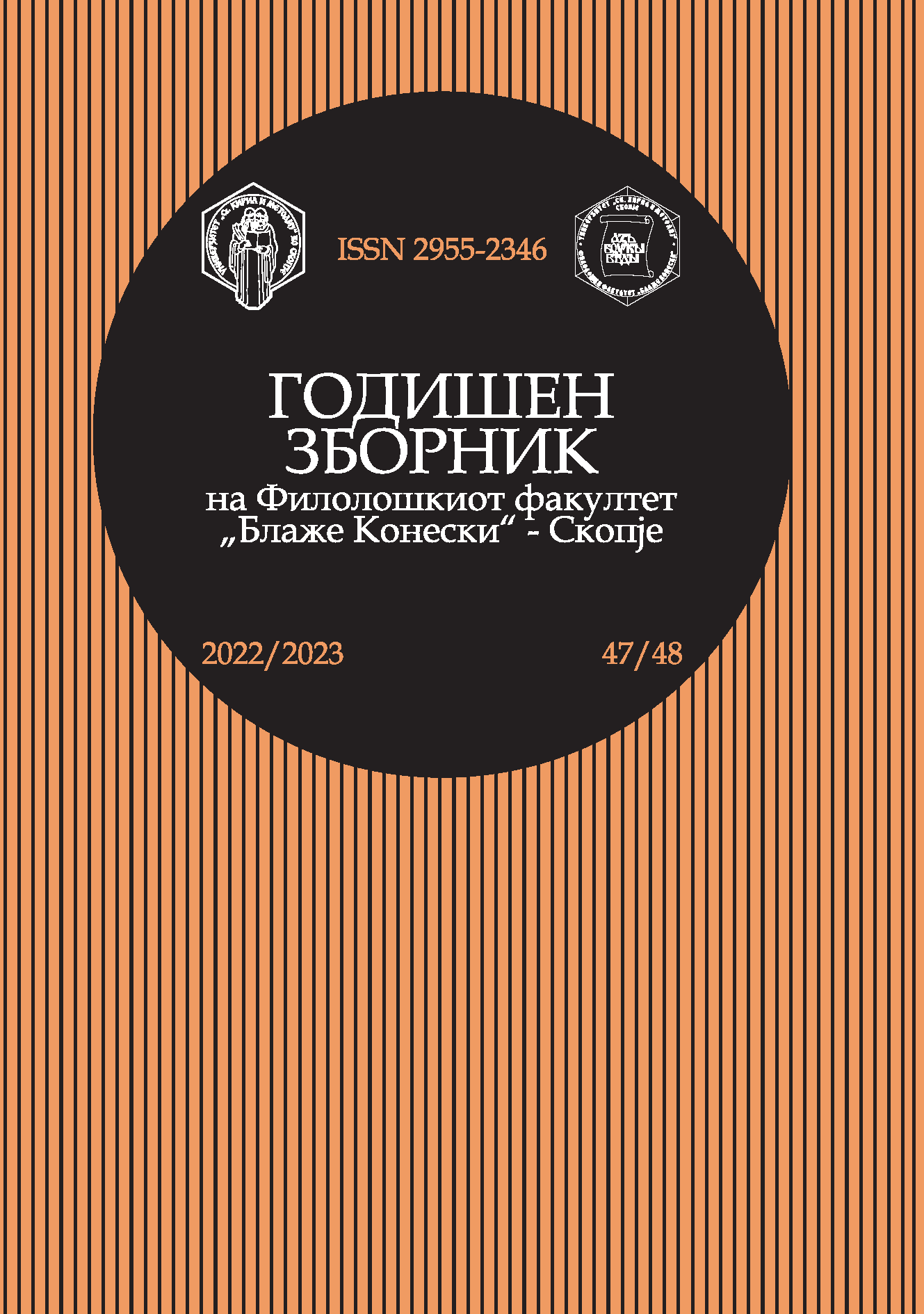Бекетовата апстрактна машина: толкување на трилогијата на Семјуел Бекет преку филозофијата на Жил Делез и Феликс Гатари
експозе на магистерски труд
ДОИ:
https://doi.org/10.37834/GZF2247-48387mКлучни зборови:
Бекет, шизоанализа, Делез, Гатари, апстрактна машина, фацијалностАпстракт
This study describes and uses the philosophical concepts of Gilles Deleuze and Félix Guattari in conjunction with the prose works of Samuel Beckett (the novels Malloy, Malone Dies, and The Unnamable) in order to designate an abstract machine in Beckett’s writing. Deleuze and Guattari’s schizoanalysis and its’ concepts, such as assemblages, lines of escape, deterritorialization, bodies without organs, order-words, faciality, etc., are utilized as intepretative tools in Beckett’s novels. This intermixing of the writer’s and the philosophers’ ideas points towards a similar understanding of the usage of language and writing in relation to systems of oppression and constraint.



